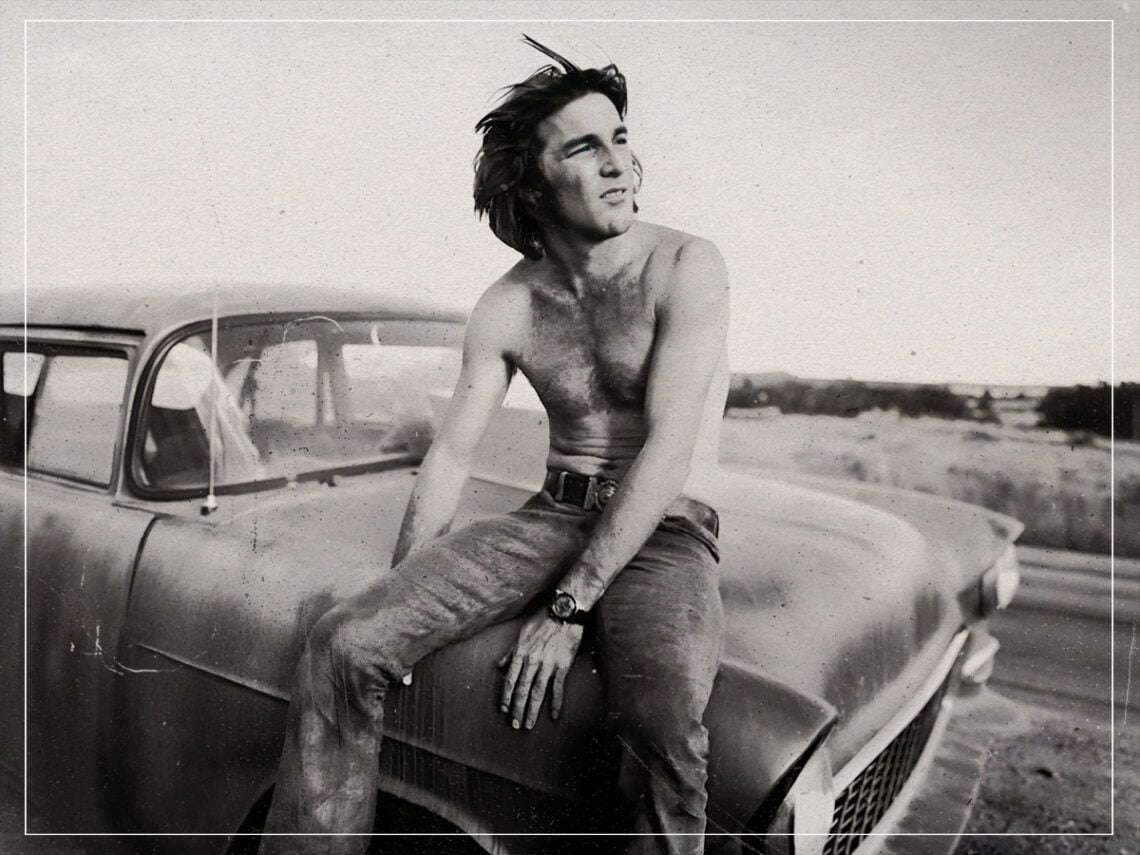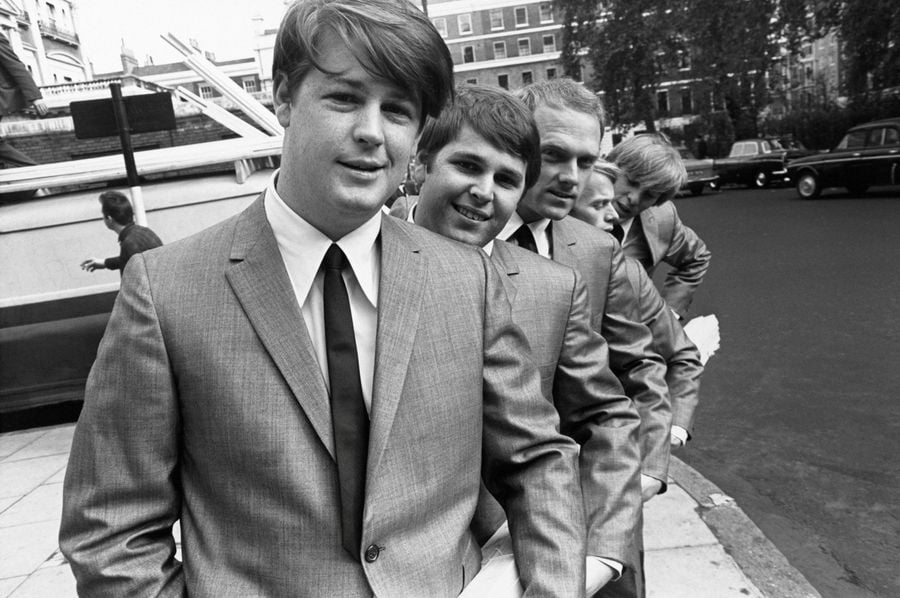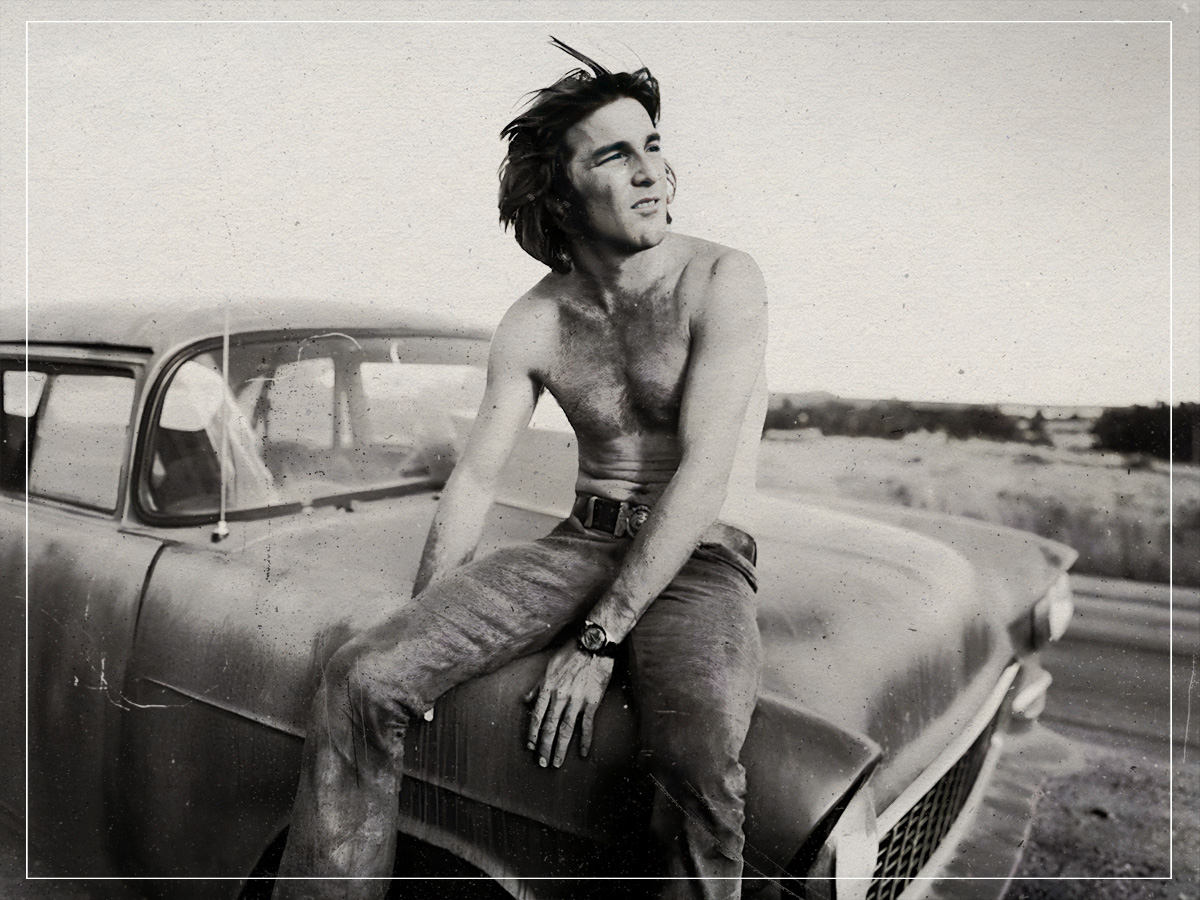
(Credits: Far Out / Alamy)
Fri 7 November 2025 17:20, UK
In the truest sense, Dennis Wilson is the only real Beach Boy, insofar as nobody else in the band could actually bloody surf.
And yet, he also did more to drag the family group away from their wholesome seaside origins than anyone else. He was the riptide that drew them away from safe, sunny AM pop into the counterculture movement at large. In this regard, he is once again the definitive member, given that the drummer typifies the light and dark that abound in their discography in equal measure.
You see, while The Beach Boys might have initially stood aside the stream of counterculture rockers and their wild antics as a rather more conservative gang, they soon wanted to wade in on the liberated zeitgeist. This led them into the world of California’s premium LSD scene and some of the shady characters therein.
In April 1968, the long-haired Lothario and grooving drummer was simply cruising along a sunny Malibu street when he was thumbed down by two female hitchhikers. The names, Patricia Krenwinkel and Ella Jo Bailey, might be known to some of the many true crime fanatics these days as they were associates of Charles Manson. Wilson, of course, was unaware at the time.
It wasn’t until he spotted the same duo hitchhiking once again a few days later that he would first hear the now infamous name of Manson. “I told [the girls] about our involvement with the Maharishi,” Wilson explained to the Record Mirror, “And they told me they too had a guru, a guy named Charlie [Manson] who’d recently come out of jail after 12 years.”
 The Beach Boys suited and booted. (Credit: Alamy)
The Beach Boys suited and booted. (Credit: Alamy)
That glaring red flag was soon on Wilson’s doorstep when he returned from a recording session. The diminutive 5ft 6in criminal was ominously waiting for the bemused Beach Boy on his driveway.
Meanwhile, inside the house, a dozen members of ‘The Family’ cavorted. This was, strangely, a welcome that Wilson seemed rather pleased with – it embodied the liberated edge that The Beach Boys had been searching for. This was the sort of shenanigan that was shifting magazines.
Naturally, in the interim years, Wilson would find himself guilty by association – maybe not in a legal sense, but by virtue of the fact that he had been involved in a harrowing ordeal that he would spend the rest of his life trying to put behind him. Thus, he developed a thick skin and intense wariness of any spiritual nonsense.
Alas, Mike Love hadn’t been involved in this sorry downfall, and the little lyricist remained very open to the zen side of things. So, when the offer arrived to record an album at the Maharishi International University in 1978, Love, who had now asserted himself as the band’s leader, snapped up the opportunity. This was not only disagreeable among the other members but also demonstrated an ignorance that misrepresented the band’s history.
Nevertheless, Love dismissed these arguments and ploughed on. Wilson was particularly peeved with this, given that he had just proved that true emotional profundity and individualism had more power than any sellable Maharishi bandwagon bullshit, thanks to his solo effort the previous year, Pacific Ocean Blue – an acclaimed and commercially successful album that has never been outsold by any Beach Boys releases since.
His shouts fell on deaf ears, with Love spotting an opening in middle-class country fetes. So, Dennis regressed into the background and barely featured on the MIU Album, but he later wished he hadn’t featured at all. “I hope that the karma will fuck up Mike Love’s meditation forever,” he growled. “That album is an embarrassment to my life. It should self-destruct.”
This scathing remark and wish for erasure would mark the end of Dennis Wilson as a creative force. The final five years of his life after MIU Album were spent in a destructive haze of substances. He had been on a creative high, and Love’s effort proved to be one comedown too many. The band that had made him had also broke him.
“They kept telling me I had my solo album now, like I should go off in a corner and leave the Beach Boys to them,” he said when he left the band in 1977. But he had been a Beach Boy from the very start, and after a string of personal losses, the hints towards the door of a band he no longer recognised proved devastating. Two weeks later, he rejoined, a mistake he would regret until his tragic end in the seas of California six years later.
However, while the MUI Album was a solemn regret, he was always well aware that Pet Sounds and the likes would survive him. As he put it himself, “They say I live a fast life. Maybe I just like a fast life. I wouldn’t give it up for anything in the world. It won’t last forever, either. But the memories will.”
Related Topics

